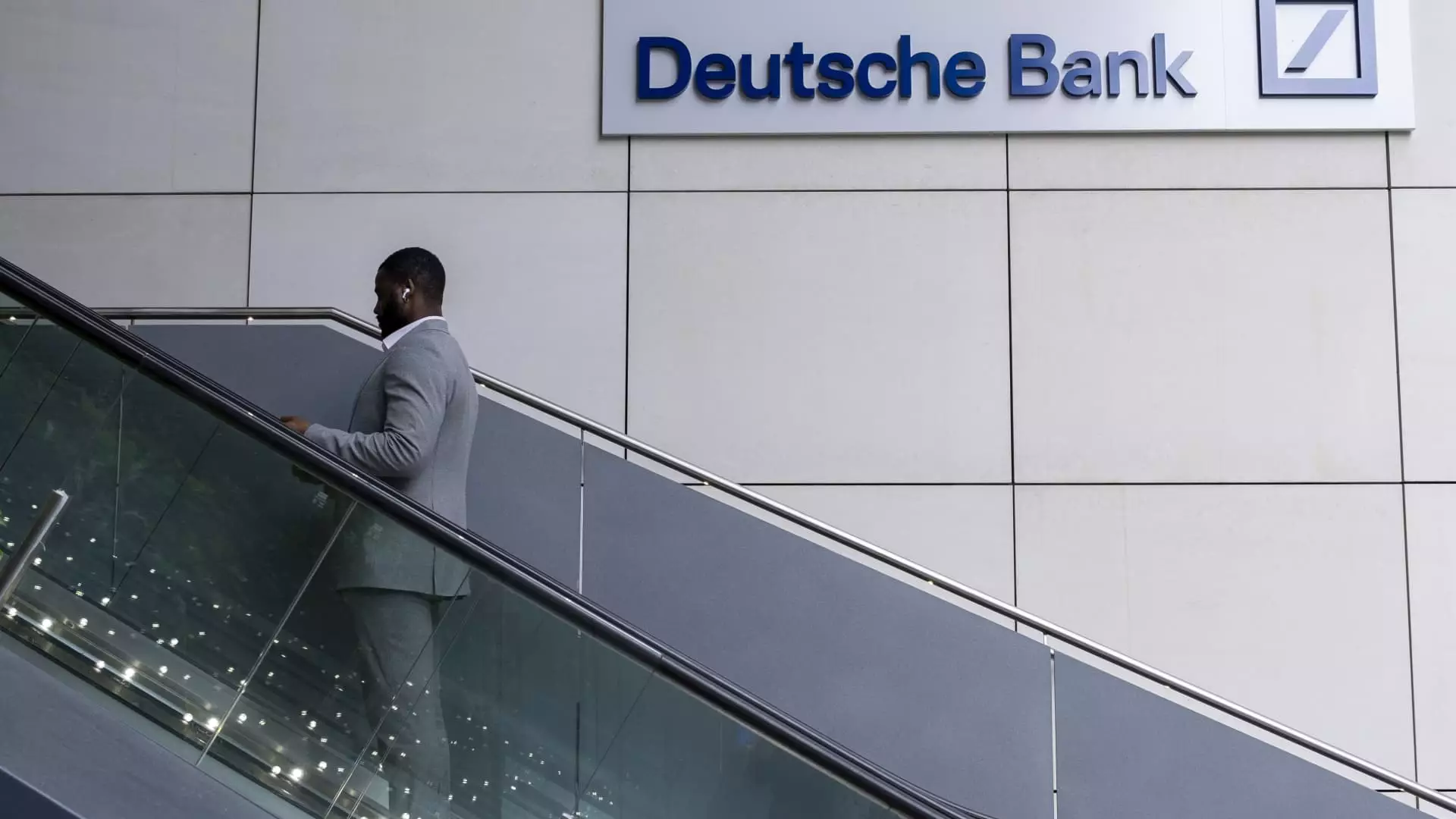Deutsche Bank, Germany’s largest financial institution, finds itself grappling with significant financial setbacks as it reported its fourth-quarter earnings for 2024. The results revealed much weaker profit margins than anticipated, overshadowed by substantial legal expenses and provisions. This article will delve into the key elements of these results, contextualize them within the broader economic landscape, and assess their implications for Deutsche Bank’s future.
In the final quarter of 2024, Deutsche Bank reported a net profit attributable to shareholders of merely 106 million euros—a stark contrast to the forecasted 282.39 million euros. The drop represents a significant decline from the previous quarter’s profit of 1.461 billion euros. The notable reduction in profit can be attributed primarily to mounting legal costs, with expenses relating to past litigation, particularly from the PostBank takeover, totaling around 594 million euros for the period. Such legal entanglements have historically plagued Deutsche Bank, raising red flags regarding its operational stability and risk management.
A full-year perspective shows a cumulative net profit of 2.698 billion euros, reflecting a 36% decrease compared to the previous year. This larger trend of declining profitability prompts concern about the bank’s operational efficiency and its ability to manage non-operating costs, which soared under the weight of these legal provisions. Deutsche Bank’s Chief Financial Officer, James von Moltke, acknowledged this burden of “one-off expenses,” indicating a systemic issue that extends beyond mere forecasting errors.
Despite the alarming drop in profit, Deutsche Bank reported a revenue of 7.224 billion euros for the fourth quarter, exceeding the analyst projections of 7.125 billion euros. However, this revenue was significantly compromised by litigation costs, suggesting that the underlying business might be performing comparatively well absent these extraordinary expenses. Over the full year, the revenue grew by 4% year-on-year to 30.1 billion euros, which signals some resilience in the face of adversity, albeit conditional on stabilizing legal issues.
The bank’s ability to achieve revenue growth would generally be welcomed, but the broader context of the European financial landscape needs to be taken into account. The European Central Bank (ECB) has been actively pursuing a cycle of loosening monetary policy, which many banks, including Deutsche Bank, have relied upon for sustained growth. However, the transition away from favorable interest rates presents a fresh set of challenges, with decreasing margins on net interest income likely in store.
In light of its disappointing earnings report, Deutsche Bank’s management has signaled a shift in its operational strategy. The bank is setting a less ambitious target for its cost-income ratio—now aiming for below 65%, a shift from the previous target of 62.5%. This change underscores a recognition of the need for a more cautious approach as it navigates its way through these financial tribulations.
Additionally, Deutsche Bank’s announcement of a 750 million-euro share buyback program could be interpreted as a strategic move to bolster investor confidence amid uncertain profitability. However, whether this is sufficient to offset the concerns about long-term viability and market competitiveness remains to be seen.
In a macroeconomic context, Deutsche Bank must also wrestle with a stagnating European economy, where growth has been sluggish for a considerable period. With significant pressures from external forces—like the impending German general elections and the uncertain fate of fellow lender Commerzbank—Deutsche Bank operates in an environment filled with potential volatility and unpredictability.
Looking forward to 2025, analysts propose a shift in strategies towards a stronger focus on fee-based income, particularly as net interest income faces tightening due to lower interest rates. Such adaptability is critical for banks like Deutsche Bank, whose traditional revenue streams are threatened by changing economic conditions. The investment banking sector has shown promising growth, with revenues surging in the last quarter, and this area could potentially serve as a stronghold in navigating the slowdown.
Deutsche Bank’s financial report for the last quarter of 2024 encapsulates both the challenges and opportunities that lie ahead. The bank is at a crossroads where it must not only address the remnants of its past mismanagement but also reassess its strategic focus to contend with a changing market landscape. As Deutsche Bank adapts, its ability to recover will hinge on maintaining operational efficiency, navigating legal burdens, and fostering resilient revenue streams in a competitive environment.

